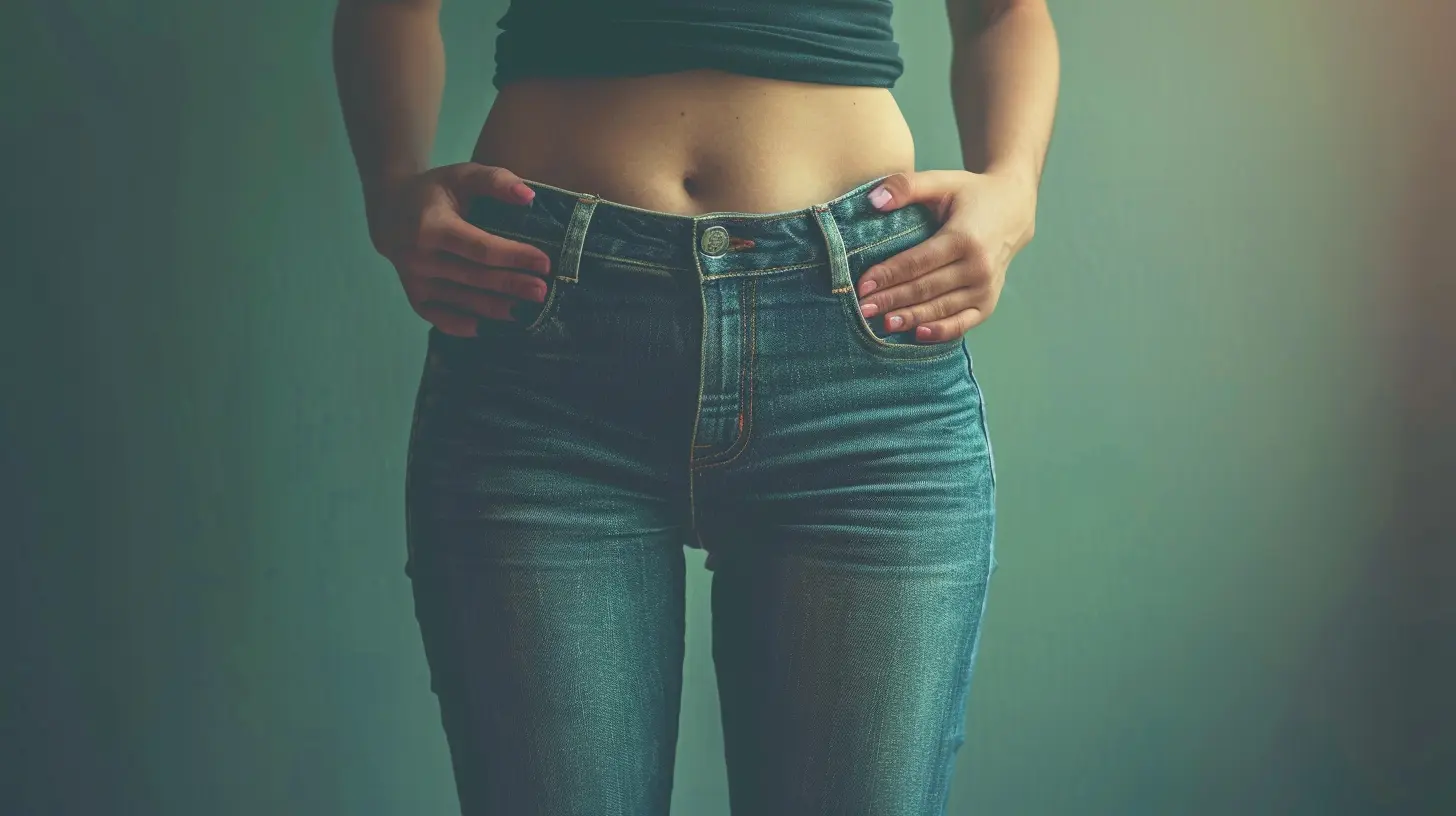Why Body Shaming Is More Harmful Than You Think
23 July 2025
Introduction
Have you ever heard someone comment on another person’s weight, size, or appearance? Maybe they meant it as a joke, or perhaps they believed they were giving "constructive criticism." But what if I told you that body shaming is far more damaging than people realize?
We live in a society obsessed with unrealistic beauty standards. Social media, magazines, and even our daily conversations are flooded with messages that make people feel like their bodies aren’t "good enough." But body shaming isn’t just an occasional hurtful remark—it can have lasting emotional, mental, and physical effects that go deeper than many of us assume.
Let’s unpack why body shaming is more harmful than you think. 
What Is Body Shaming?
Body shaming is the act of criticizing someone’s physical appearance. It can come in many forms, including:- Comments about weight ("You should eat less," "You need to put on some weight.")
- Mocking someone’s body shape ("Why do you have such a big nose?" "Your arms are too skinny.")
- Judging appearance changes ("You looked better before," "That outfit doesn’t suit your body type.")
- Self-shaming (negative self-talk like "I look disgusting" or "I hate my body.")
While some people think these remarks are harmless, they can have severe repercussions on an individual’s well-being. 
The Psychological Impact of Body Shaming
1. Low Self-Esteem and Negative Self-Image
Imagine being told repeatedly that your body isn’t "ideal." Over time, these comments build up, leading to self-doubt and insecurity. People who experience body shaming often struggle with body dysmorphia—a condition where they obsess over perceived flaws that might not even exist.When someone is constantly criticized for their weight or appearance, they might start believing they’re not good enough. This negative self-image can affect personal relationships, career opportunities, and overall happiness.
2. Anxiety and Depression
It’s no surprise that body shaming contributes to mental health struggles. Studies have shown a strong correlation between body shaming and issues like anxiety and depression.When people feel like they don’t fit society’s beauty standards, they may isolate themselves, avoid social situations, or develop severe emotional distress. In extreme cases, body shaming can even lead to suicidal thoughts, especially among young individuals.
3. Eating Disorders and Unhealthy Habits
One of the worst consequences of body shaming is its link to disordered eating. Many individuals resort to extreme diets, binge eating, or even starvation due to societal pressure.For example, someone who has been told they are "too fat" might develop an unhealthy relationship with food—either by over-restricting calories or overeating due to emotional distress. Over time, this can spiral into eating disorders like anorexia, bulimia, or binge eating disorder. 
The Physical Toll of Body Shaming
1. Stress and Its Effect on the Body
Did you know that constant stress from body shaming can physically harm you? When someone feels ashamed of their body, they often experience chronic stress, which raises cortisol levels.High cortisol levels have been linked to weight gain, digestive issues, headaches, and even heart disease. So, ironically, body shaming someone for their health could actually make their health worse.
2. Poor Relationship with Exercise
Exercise should be about feeling strong, energized, and happy—not about punishing yourself for the way you look. But body shaming often turns physical activity into a punishment rather than a source of joy.Many people who experience body shaming either:
- Engage in excessive, unhealthy exercise to "fix" their body.
- Avoid exercise entirely due to fear of judgment at the gym or in public.
Both extremes can have long-term negative effects on physical and mental health. 
Social Consequences of Body Shaming
1. Strain on Relationships
Body shaming doesn’t just impact individuals—it affects relationships too. When friends or family members shame someone’s body, it creates emotional distance, resentment, and pain.Think about it. If you're constantly criticized by loved ones, wouldn’t you start avoiding them? Many victims of body shaming withdraw from social interactions to escape judgment, leading to loneliness and isolation.
2. Workplace and School Discrimination
Did you know that body shaming exists in professional and educational settings, too? People who don’t fit "conventional" beauty standards often experience bias when applying for jobs, promotions, or even participating in school activities.This discrimination isn’t always obvious, but it can affect career opportunities and social inclusion. In a world where appearance is unfairly prioritized, people face challenges that they shouldn’t have to endure simply because of their body size or shape.
How Social Media Contributes to Body Shaming
Let’s be real—social media plays a massive role in promoting unrealistic beauty standards.Every day, we scroll past highly edited images, influencers with "perfect" bodies, and diet culture promotions. Young people, in particular, are flooded with messages that tell them they need to look a certain way to be "worthy."
Filters, Photoshop, and digital enhancements make it nearly impossible to distinguish reality from fantasy. This constant exposure fuels self-doubt and body dissatisfaction, making people feel like they’ll never measure up.
Even worse, online trolls and cyberbullies use social media as a platform to shame others, leaving hurtful comments that can cause deep emotional wounds.
How to Stop Body Shaming (And Promote Body Positivity)
1. Reframe Your Language
The way we talk about bodies matters. Instead of making comments about weight or appearance, focus on positive or non-judgmental statements.For example:
❌ "You’ve gained weight." → ✅ "You look happy and healthy!"
❌ "You’re too skinny." → ✅ "I love your energy and confidence!"
Small changes in language can make a big difference.
2. Encourage Self-Love and Body Neutrality
Promoting self-love doesn’t mean ignoring health—it means accepting and respecting your body at any size. Body neutrality, in particular, encourages people to focus on what their body can do rather than how it looks.Instead of saying, "I hate my thighs," try, "My legs allow me to walk, dance, and move freely."
3. Unfollow Toxic Social Media Accounts
If certain accounts make you feel bad about yourself, it’s time to hit unfollow. Surround yourself with content that uplifts and inspires, rather than promotes unhealthy beauty standards.Follow body-positive influencers, activists, and accounts that encourage self-acceptance and mental well-being.
4. Speak Up Against Body Shaming
If you hear someone body-shaming—whether it’s a friend, family member, or stranger—don’t stay silent. Call it out in a respectful way, or redirect the conversation to something positive.By standing up against body shaming, you help create a more inclusive and supportive environment for everyone.
Conclusion
Body shaming is much more than just a few harsh words—it’s a toxic behavior that has long-lasting effects on mental, emotional, and physical health. It leads to low self-esteem, anxiety, depression, eating disorders, and even social discrimination.But the good news? We have the power to change the conversation. By promoting kindness, self-love, and body acceptance, we can create a world where people feel valued for who they are—not how they look.
So next time you hear a body-shaming comment, remember: words have power. Let’s use them to uplift, not tear down.
all images in this post were generated using AI tools
Category:
Body ImageAuthor:

Eliana Burton
Discussion
rate this article
1 comments
Selene Martin
Great insights! Body positivity is essential for mental health.
August 10, 2025 at 4:37 AM

Eliana Burton
Thank you! I'm glad you found the insights valuable. Body positivity truly plays a crucial role in promoting mental well-being.


